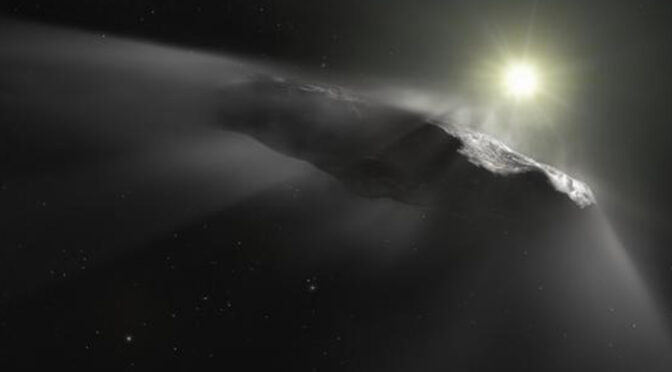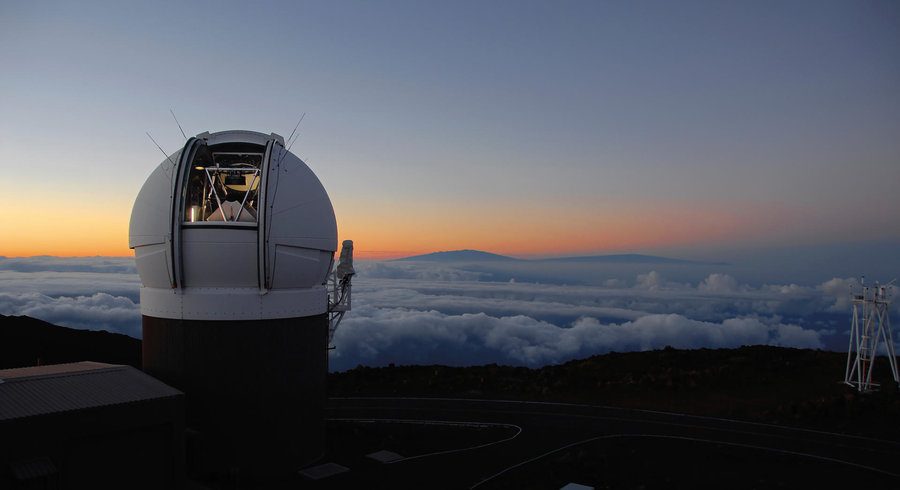 In October 2017, an object from interstellar space was spotted by the Pan-STARRS 1 telescope in Hawaii: it crossed our solar system, passing relatively close to Earth (30 million kilometers away). It was the first of its kind to be detected. Named Oumuamua (“scout” in Hawaiian), it immediately aroused the interest of astronomers. Where did it come from, what as it composed of, what was its history?
In October 2017, an object from interstellar space was spotted by the Pan-STARRS 1 telescope in Hawaii: it crossed our solar system, passing relatively close to Earth (30 million kilometers away). It was the first of its kind to be detected. Named Oumuamua (“scout” in Hawaiian), it immediately aroused the interest of astronomers. Where did it come from, what as it composed of, what was its history?
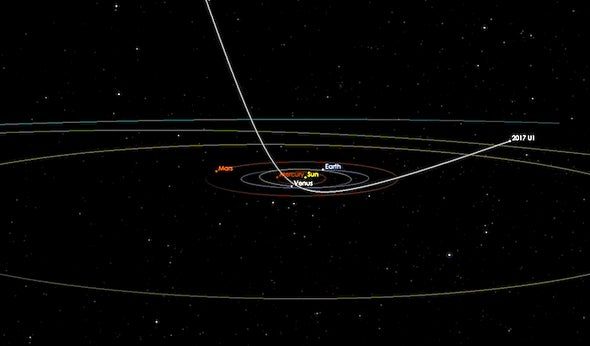
Subsequent radio astronomical observations suggested that Oumuamua was about ten times longer than it is wide, dark red in color, dense and rich in metal. An artist’s view of it in the shape of a cigar was successfully circulating on the Internet.
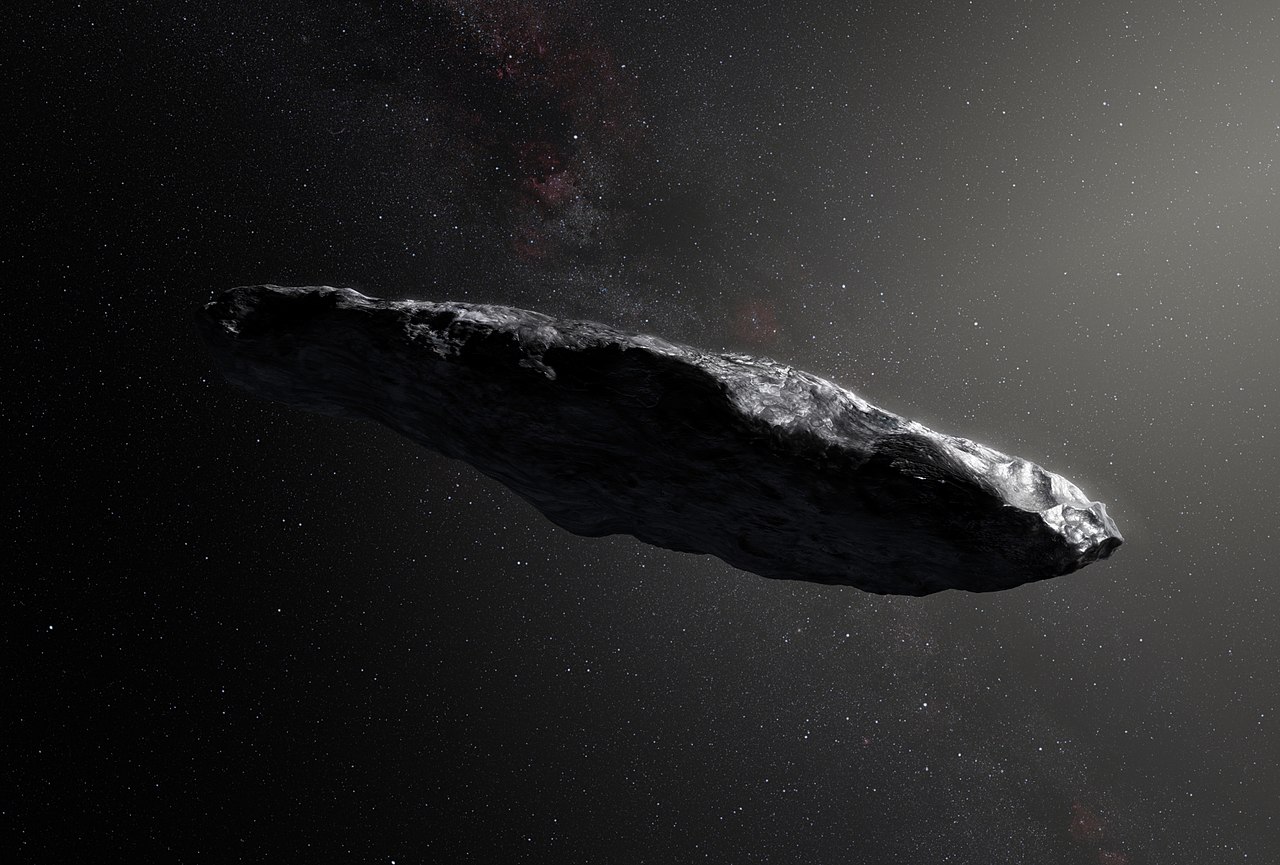
Specialists in “small bodies” believe that it is an asteroid or a comet expelled from its original planetary system, perhaps the remnant of a disrupted planet. But for Avi Loeb, chairman of the Department of Astrophysics at Harvard, its shape is too strange to be natural.

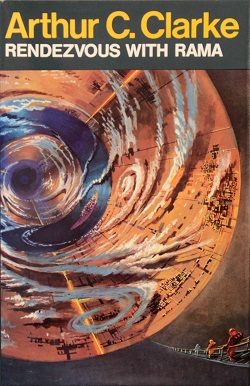 In a very serious article published late 2018 with one of his students, he hypothesized that Oumuamua is an interstellar probe sent to us by an advanced extraterrestrial civilization in order to deliver a message. Like the majority of my colleagues, I considered at the time the idea intelligent and daring, but far-fetched. It was irresistibly reminiscent of the scenario of Rendezvous with Rama, a science fiction novel published in 1973 by Arthur C. Clarke that all fans of the genre are familiar with.
In a very serious article published late 2018 with one of his students, he hypothesized that Oumuamua is an interstellar probe sent to us by an advanced extraterrestrial civilization in order to deliver a message. Like the majority of my colleagues, I considered at the time the idea intelligent and daring, but far-fetched. It was irresistibly reminiscent of the scenario of Rendezvous with Rama, a science fiction novel published in 1973 by Arthur C. Clarke that all fans of the genre are familiar with.
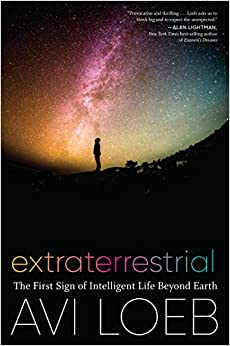 However, Loeb has developed his thesis in a book that is enjoying a worldwide release (happy Anglo-American authors and what a formidable editorial machine!), with the simple and appealing title Extraterrestrial.
However, Loeb has developed his thesis in a book that is enjoying a worldwide release (happy Anglo-American authors and what a formidable editorial machine!), with the simple and appealing title Extraterrestrial.
At first glance, this is the kind of sensational book that would have annoyed me. However, I know its author. Far from being one of those whimsical popularizers who occasionally make the headlines with catchy titles, Loeb is a genuine scientist who has published very serious articles on a wide range of subjects, from cosmology to black holes. I am therefore well placed to appreciate his contributions. In fact, he personally received me in June 2019 at Harvard, during the gala dinner of the conference organized to celebrate the first telescopic image of a black hole obtained two months earlier by his team, and which confirmed my calculations made 40 years earlier (hence the invitation).
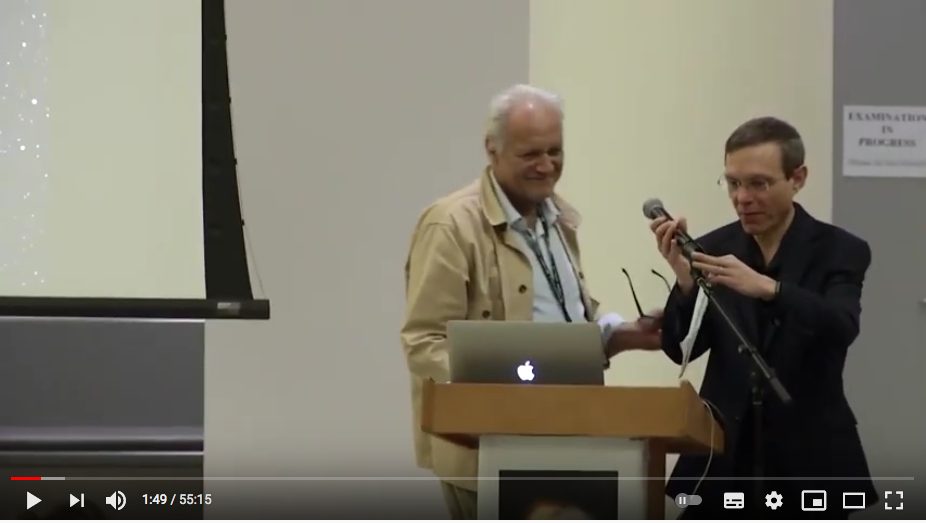
Loeb is a particularly imaginative mind. With this book for a general audience, he also proves to be an excellent writer, taking care of the scientific background as well as the literary style. One can judge it by this simple sentence: “a photo-sail swept away by the gust of a supernova makes me think of the fluffy pappus of a dandelion seed, blown by the wind towards virgin soil to be fertilized”.
From the introduction, he reminds us that one of the fundamental questions of humanity, undoubtedly the one that challenges us the most through the prism of science, philosophy and religion, is: are we alone in the universe? And, more specifically, are there other conscious civilizations exploring interstellar space and leaving testimonies of their undertakings?
The question certainly fascinates the general public. Just look at the success of the French UFO series currently on Canal Plus channel, of which was the scientific advisor – proof that I take the question of extraterrestrial intelligencies seriously, even if I am far from being as convinced as my American colleague.
The public, which generally has an agreed idea of scientists right in their boots, is probably unaware that many astrophysicists would dream of convincing proof of the existence of advanced civilizations. But for the moment, it must be admitted that there is none. Being a scientist also means knowing how to deal with the disappointment of “natural explanations”. Continue reading Oumuamua : extraterrestial spaceship or extrasolar asteroid?
